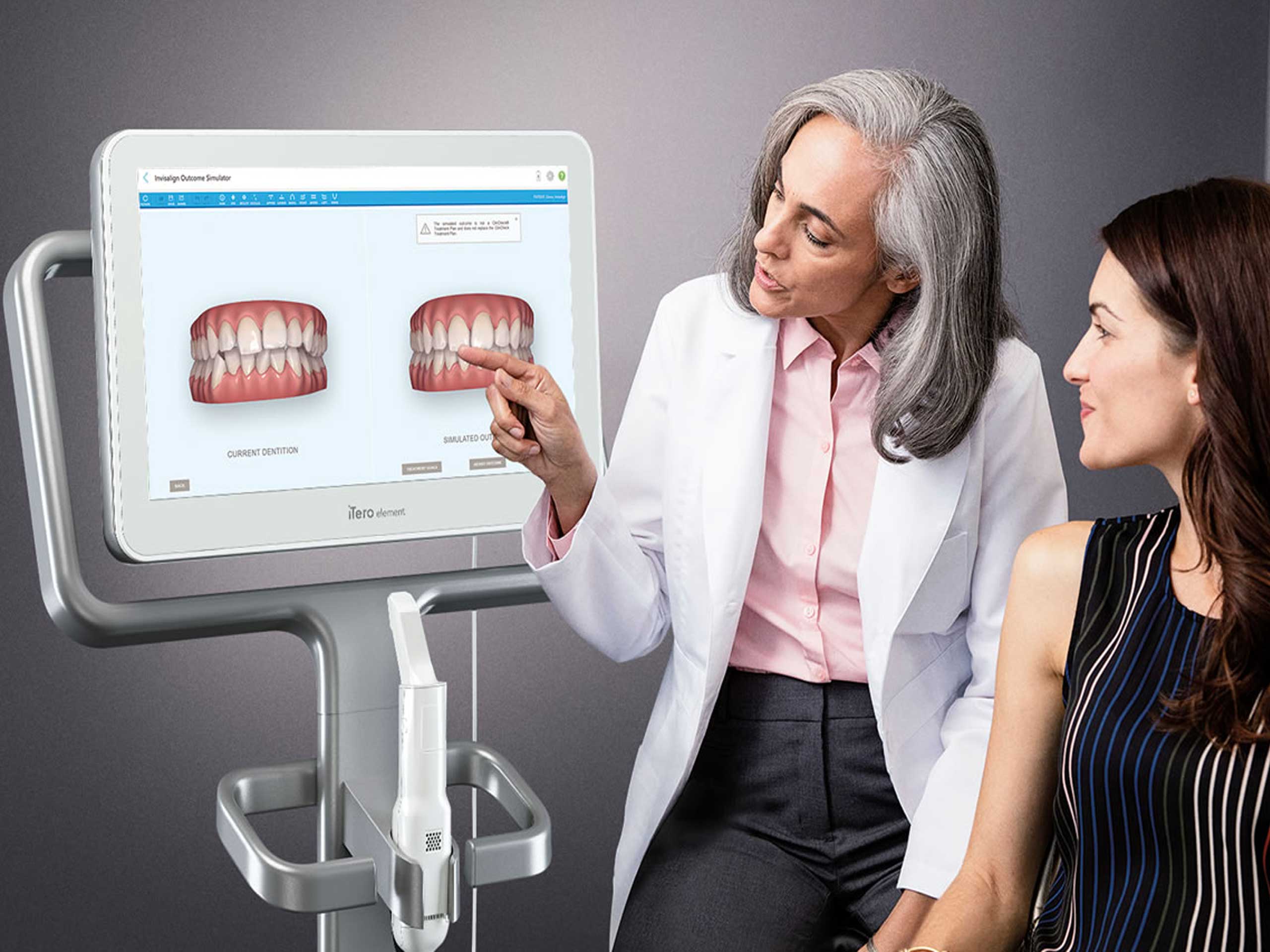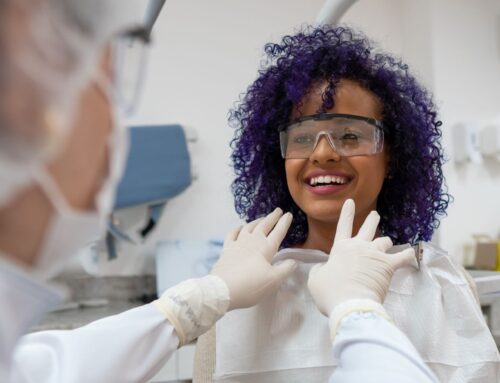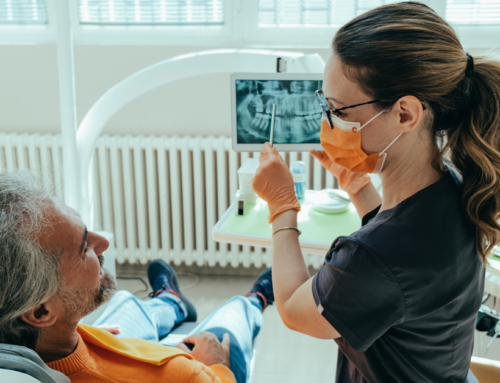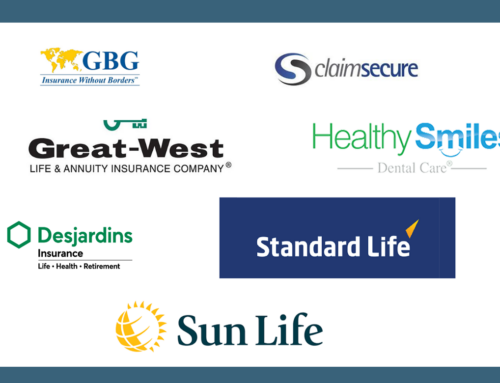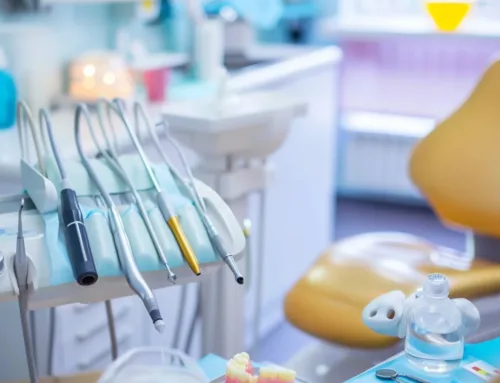Dental Treatment Consultations
A typical checkup at your dental clinic is pretty straightforward. However, when you’re considering a more complicated treatment, the process is a little different.
In these situations, a consultation is required so we can:
- Explain the available options
- Explain what optional consult elements involve a cost (i.e. things like x-rays, in-depth oral exams, etc…)
- Conduct an oral exam
- Take any required imagery
- Provide an informed treatment plan for your specific case
In this blog post, we will explain exactly what this means, and why it’s important to have the right expectations so there aren’t any surprizes when you go for your consultation.
Why Do I Need a Dental Consultation?
Have you ever wondered whether or not braces would be a good idea for you? Perhaps there’s a minor tooth alignment issue that hasn’t really been a major health concern, but maybe it’s always bothered you and you never found out exactly what’s involved in having it addressed. Maybe orthodontics could be an easy way to help improve the look of your smile.
Perhaps you’ve had a long history of dental health troubles over the years that have resulted in lost or missing teeth, or you have suffered with a fear of dentists, both of which has negatively affected your self-confidence, or perhaps has even impacted your diet and nutrition by limiting the types of foods you can enjoy. The idea of getting implants, dentures or braces has been in the back of your mind, but you wonder what other options might be available to help improve your state of dental health.
These examples are just two of many situations that people find themselves in, and also help to illustrate why dental consultations are such a vital part of the services that dental clinics provide to their patients. In the age of ‘do your own research’ thanks to the Internet, many people believe that a Google search or a video on YouTube or Facebook will answer their questions equally as well as a face-to-face meeting with an actual dentist. In reality, nothing could be further from the truth. Misinformation, assumptions, and confusion abound online, and in order to cut through the clutter and get down to the real facts about dental health treatments and what they mean specifically for your individual case, a dental consultation is absolutely necessary.
Dental Treatments That Require An Initial Consultation
Now, not all dental treatments will necessitate a separate consult appointment. In fact, if your dentist is already familiar with your history of dental health and has been caring for you for a number of years, some minor treatments could be recommended without a separate sit-down conversation. Things like teeth whitening, simple fillings, emergencies and other “standard” situations, normally just require a simple discussion over the phone or if you were already in the clinic for something else.
In cases where the procedure is known to be complex (i.e. requiring multiple appointments, and/or dental surgery), or when we aren’t already familiar with your dental health history, an in-person consultation is necessary for both the patient and clinic in order to explore what the best options are based on your specific case.
There are many types of procedures that can include a free consultation for the patient to learn more about the treatment and have your specific questions answered. These include braces and orthodontics, pinhole gum surgery to treat gum disease, dental implants of all types, dentures, dental bridges, dental crowns, root canals, and complete mouth reconstructions.
Here are some examples from these types of procedures that illustrate some of the most common reasons why consultations are required before the treatments can move ahead.
Orthodontics & Braces – With so many different styles of braces available, from traditional metal braces, ceramic braces, and fast braces to the clear aligners used for Invisalign treatment, there are many questions patients usually have. Consultations will help explain in more detail what’s involved with orthodontics, how long treatment typically takes, what the pros and cons are of each type of braces, what the costs are, and more.
Extractions & Wisdom Teeth Removal – In the event that a tooth needs to be removed for any reason, including the removal of wisdom teeth, a consultation helps provide the patient with a better understanding of what to expect and how the outcome will benefit them in the long run. Extractions are typically only done out of necessity, so the health implications are important to understand. Also, in some cases, a root canal can be performed to save the tooth, which is far less expensive than replacing it with an implant.
Dental Bridges, Dental Crowns, & Dental Bonding – These types of restorative dental treatments vary in scope and complexity with each patient, so there really is no ‘one size fits all’ approach. To get a better understanding of what a procedure like these would include, and what the different options are for your unique state of dental health, an in-person consultation will see that your questions are answered.
Gum Disease & Periodontitis Treatments – Gum disease is one of the leading preventable causes of deteriorating dental health, lost or loose teeth, and many other oral health problems. If left untreated, gum disease can also lead to other types of long-term health effects. If you’ve noticed gradual recession of gum tissue around your teeth, increasing frequency of bleeding or sensitivity in the gums, or chronic bad breath, these are common early signs of gum disease. Booking a dental consultation will help inform you on what the treatment options are to prevent the progression of gum disease and help to reverse its effects.
Dental Implants & All-on-4 – In many cases, the best way to solve the problem of lost or missing teeth is with a dental implant. For advanced cases of tooth loss where multiple teeth on the upper and lower jaws are gone or in need of extraction, your dentist may recommend the All-on-4 procedure to provide a complete restoration of your entire mouth with a full set of artificial teeth. Implant procedures have substantial health benefits for patients who have lost teeth, and there are many questions to answer and factors to consider before moving forward. Because of this, an initial consultation is needed to inform the patient accordingly and set the stage for what they should expect.
Dental Consults – Time to Ask Questions
Cost and alternative treatment options are always explored for you to consider with any procedure during your consultation, and the various financing options and payment plans we offer in our clinics can be discussed in greater detail.
This is also your time to ask questions, seek answers and learn more about what other potential treatment options exist for your specific situation. While we do our best to provide you with all the options, you can still ask whatever you want, as this is what the consultation is all about, giving you answers.
When arranging a dental consultation to get more information on a treatment you need or an elective procedure you wish to undertake, it’s essential to have a clear understanding of what will occur in the preliminary meeting so that everyone is on the same page and there aren’t any surprises with respect to what’s included and what isn’t.
In general, complimentary dental consultations are primarily discussion-based, where questions and concerns are voiced by the patient, and answers and clarity are provided by the dentist. Your dentist may also take a quick look at the inside of your mouth depending on the nature of the issue you are there to discuss, but this is not always the case. These types of consultations are generally fairly concise, usually taking less than an hour, and are commonly performed free of charge to the patient.
However, there are many instances where a particular type of procedure raises some critical questions that require the dentist to both gather more information, and review, analyze and form a treatment diagnosis, all of which takes time and clinical resources.
In cases such as these, the next step after the initial dental consultation will be gathering information. This can include X-rays, and if required, performing digital imaging scans of the mouth, as well as performing an in-depth oral exam after reviewing the imaging. These are required tasks in order to obtain a complete picture of the patients’ condition down to the smallest detail. This is vital in order for us to accurately plan the course of treatment, and to ensure the optimum outcome for the patient. In addition, for more complex cases, where cost plays a major role in deciding which way to go, we provide different options, at different price points, for the patient to consider.
Consultation Costs & Fees
Due to the expansive range of examination types that may be required as part of the comprehensive dental consultation, this part of the process can not be done for free like the initial portion of the consultation, and costs can vary depending on what’s needed to obtain the required information to plan our recommendations for your treatment. However, most dental consultations that require added services such as x-rays, imaging scans, and complete mouth examinations usually cost around $300.00 Fortunately, many of these tests and exams are covered by dental insurance policies, so costs could be minimal depending on what coverage you have.
What Normally Happens After The Initial Consultation?
Once the initial consultation is completed, and we’ve provided all your options, patients normally feel that they have sufficient information to make a decision with the treatment options provided. Appointments can then be booked to perform any necessary x-rays, scans, or oral exams that are required, and timelines can be established to help manage the expectations of when treatment milestones will be reached along the way.
In the event that further information is needed to more clearly outline the course of treatment, we provide whatever clarity is requested, and the patient can either provide their approval to continue with the formation of a complete treatment plan then and there, or they can take our written treatment plan estimate home and make their decision at their own pace.
We never make patients feel like they’re being rushed into making a decision.
When Should I Book A Dental Consultation?
Quite simply, if you have any concerns about your dental health, above and beyond what normally occurs during a typical checkup or cleaning visit to your dental clinic, then a dental consultation is a good idea. Regardless of what kind of dental needs you may have, a consultation will give you the opportunity to learn more about the options that are available to you, and how each one may have certain advantages or benefits over others to help address your specific concern. Whether you’re considering braces for yourself or your child, are interested in a variety of cosmetic dental treatments, or are experiencing the deteriorating effects of lost or missing teeth and would like more information on dental implants, booking a dental consultation with Georgian Dental will provide you with all the information you need to make an educated, informed decision with respect to treatment options.
Contact our team of friendly dental professionals today, and we’ll get an appointment scheduled for your complimentary dental consultation to answer your questions, address your concerns, and provide the clarity you need to make the right choice for your dental health. Or, if you have any questions about dental consultations, we’re happy to help.
We look forward to speaking with you soon!
Appointment Request
If you’re interested in any of our procedures, and would like to meet with one of our dentists to discuss options, costs and get additional information, complete this short form and we’ll give you a call to arrange for a no-obligation appointment at our Barrie clinic.
